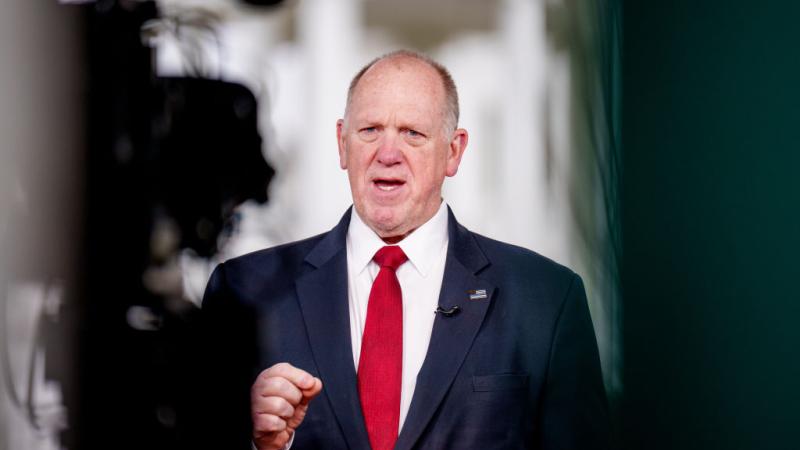If Trump decides to restore order on his own, he may use the 1807 Insurrection Act
Trump has not yet invoked the law that will allow him to send federal troops into U.S. cities, Pentagon official says.
President Trump on Monday warned state and city officials to stop riots in their jurisdictions, or he would send in federal military forces to instill order - mirroring an earlier White House comment that the president might invoke the two-centuries-old Insurrection Act.
"If a city or state refuses to take the actions that are necessary to defend the life and property of their residents, then I will deploy the United States military and quickly solve the problem for them," Trump said during an address in the Rose Garden.
In his comments, Trump did not cite the 1807 law that empowers him to use federal troops on home territory. The White House signaled today, though, that the president has considered using the law to re-impose order after widespread violence following the death last week of George Floyd in Minneapolis.
“The Insurrection Act, it’s one of the tools available, whether the president decides to pursue that, that’s his prerogative,” White House press secretary Kayleigh McEnany told reporters Monday.
Speculation spread for much of the day on social media and elsewhere that Trump would send active duty troops to stem unrest in embattled American cities.
Following an appearance this morning on Fox News, Arkansas Senator Tom Cotton, a Republican, took to Twitter to reiterate his views on the matter.
“The president should use the Insurrection Act to deploy active-duty military forces to these cities to support local law enforcement and ensure this violence ends tonight,” Cotton wrote. “If local law enforcement is overwhelmed and needs backup, let's see how tough these Antifa terrorists are when they're facing off with the 101st Airborne Division.”
Trump retweeted and praised Cotton’s comments; but, the Pentagon said, did not send in active duty troops.
“At this time, the president has not enacted the Insurrection Act,” a senior defense official told Just the News on Monday night.
The official referenced public images that some have mistakenly thought depict federal troops on the streets of Washington, D.C.
“The service members shown on TV are from the D.C. National Guard,” the official said. “There are roughly 1,200 service members from the D.C. National Guard, and the department has requested approximately 600-800 additional service members from other National Guard units from five states.”
Those states include Delaware, New Jersey, New York, Ohio, and Utah, the official said. “Those troops coming from other states are either here in DC or on their way now,” the official said.
The troops are federally funded, but remain under Title 32, or state status, the official said. As such, they do not fall under the provisions of the Insurrection Act.
Although it has not been used since the 1992 Los Angeles riots surrounding the Rodney King case, the act - or a version thereof - is nearly as old as the Republic.
The Militia Act of 1792 empowered the president to use the military to put down insurrection, according to researcher Danielle Crockett. The successor law, the Insurrection Act of 1807, first was used in 1808 by President James Madison, Crockett wrote.
In subsequent years, modern presidents also have invoked the act. In 1957, Dwight Eisenhower used federal troops to enforce school integration in Arkansas. In 1962 and 1963, John Kennedy used them in Mississippi and Alabama. In 1989, after Hurricane Hugo, George Bush sent federal troops to the U.S. Virgin Islands.
Soldiers who have operated under the Insurrection Act have engaged in minimal fighting, according to Crockett.
“History demonstrates that the mere presence of a small number of military personnel has been sufficient to quell civil disturbances,” she wrote in a law paper for the University of California’s Berkeley campus.
In his remarks on Monday, Trump said that non-federal troops should be used to put down violence that has wracked American cities. He said he had recommended to every governor to activate the National Guard, and that mayors and governors establish an "overwhelming law enforcement presence until the violence has been quelled."














